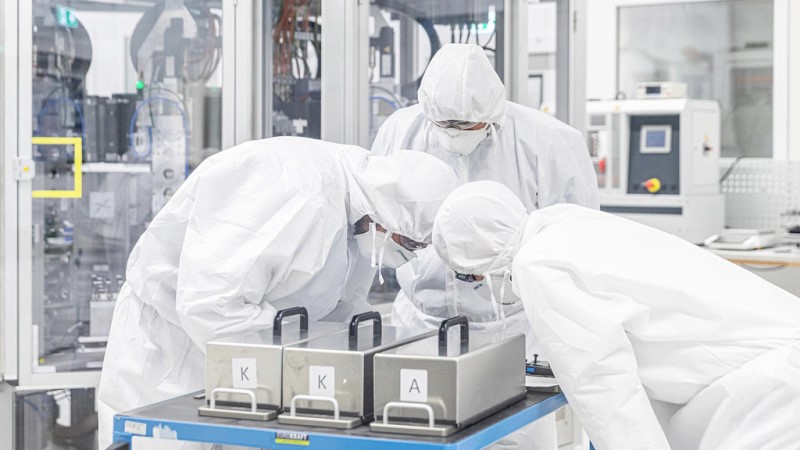As companies keep announcing new Gigafactories, they will require more and more employees. The European Commission expects up to 4 million new jobs to be created by 2025 as a result of new alliances in the battery industry. But what kind of jobs are offered and where are employees needed most in Europe? I looked at 1000 job listings to find out just that.

How was the Analysis Conducted?
For this article, I looked at job postings that include the term “battery”. I gathered the job postings from a well-known platform for professional networking. The advantage of this site is that it allows you to search across different countries.
I searched for jobs in the European Economic Area and selected 1000 job listings in July 2021 to find out what types of jobs are offered and where these opportunities are located. After some data cleaning, 934 job postings were left. I grouped them by country, company, and job type; mostly based on keywords and with some manual corrections.
Some disclaimers:
- These are the jobs the site finds the most relevant for me. Since I live in Germany it is very possible that this skewed the results.
- Not all companies post their job listings on this site. But since it’s very popular, it still gives a good idea of the job market.
- This article focuses on industry jobs, not on academia.
- The widest search region available was the EEA, which doesn’t include countries like Switzerland or Serbia. However, on this job site, it still includes the UK.
- I have removed exact matches, but duplicates cannot be ruled out. E.g. if a company posts a job for different locations
Here are the Results
What Roles are Offered?
In academia, battery research seems to focus a lot on cell chemistry. But what roles are most in-demand on the industry side?
I divided the listings up into the following job types. Since the keyword was “battery”, mining jobs are not included in the analysis.
- R&D: Cell or battery development, also testing and general battery research
- Chemistry: Everything related to material research and electrochemistry
- Manufacturing: Process engineers are included in this category
- Project Management
- Business: Mainly traditional roles like business development or sales, but with required knowledge of batteries
- IT: This includes machine learning, conventional software development, simulation, and also BMS
- Consulting and Advisors
By far the most job postings, almost half, are related to research and development. If we include cell chemistry, this share exceeds 50%. In this analysis, jobs for chemists make up only 5% of job postings. This could be due to the fact that jobs in academia are usually not posted on these types of job sites. Employees in traditional business roles with background knowledge of batteries make up around 10.8% of the listings.
Manufacturing engineers (9.4%) and software developers in simulation, BMS, and machine learning (8.1%) also make up a non-negligible proportion. Especially in IT, the field of possible tasks is very broad and offers many opportunities.
Where are Battery Specialists Most In-Demand?
In addition to the type of job, the location is of course also important. In the following diagram, I have listed the countries with the most job listings. If anyone is interested in the data for all countries or companies, please DM me on Twitter or send me a message via the contact form.
As you can see, the number of jobs greatly differs between different countries. Germany is at the top, which, as I mentioned before, could be owed to the fact that I live in Germany. In second place – with a whopping 200 of the 1000 jobs I looked at – is Sweden. Swedish company Northvolt offered by far the most jobs of any European company: 160 jobs. Most of them are in Sweden, some in Gdańsk, Poland.
The top 5 companies by the number of jobs posted are:
- Northvolt – 160 Jobs
- Bosch – 29 Jobs
- Tesla – 28 Jobs
- Valmet Automotive – 24 Jobs
- Webasto Roof Systems – 19 Jobs
A Great Opportunity for Europe
The transformation to a more sustainable future, for which batteries are essential, not only has environmental benefits. It can also bring economic growth and many jobs. Not just for scientists, but for a broad range of professionals. In the coming years, this trend will continue with the opening of more Gigafactories all over Europe. I am excited about this development and hope to have encouraged you with this article!
You can follow me on Twitter (@BatteryBayEU). I’m looking forward to learning about your involvement or interest in the industry and chatting about everything batteries.
Also, please feel free to use the comment section below to leave any feedback or suggestions!